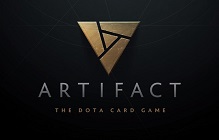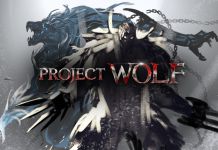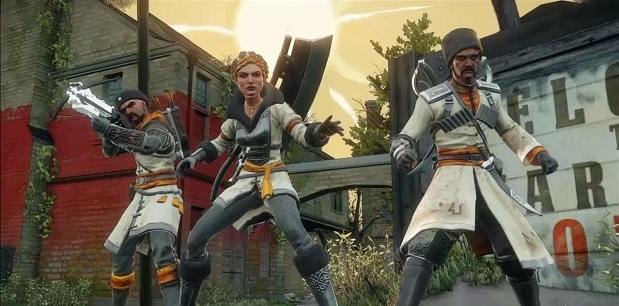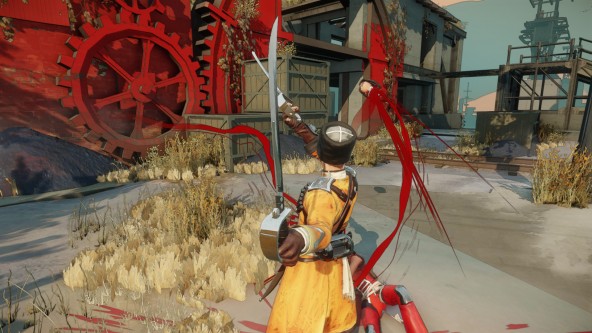Whatever Happened To … Battlecry?
As much as we might make fun of “dead” or “dying” games, at least a game that launched and then declined rapidly … well, launched.
Other titles aren't always so lucky. They get a big announcement, some PR hype … and then the news becomes less and less frequent. The websites aren't updated as much. Social media accounts go silent. Then, years later, someone asks the question: “Hey, whatever happened to that game?”
The answer is usually a Dr. McCoy-esque “It's dead, Jim.” But until the developer or publisher officially pulls the plug, there's always a glimmer of hope to be had. Some games go out with a bang, leaving no question as to their alive-or-dead status. Others simply fade away, leaving hopeful players to wonder if they'll ever get their hands on that game that sounded cool on paper – and might have even had a chance to play.
Today, we'll take a look at whatever happened to … Battlecry.
Battlecry
Developer: BattleCry Studios
Publisher: Bethesda Softworks
Before Overwatch, there was BattleCry. OK, maybe that's not a direct lineage, but if BattleCry came out now, it would be dubbed – as many games have – an “Overwatch clone” (which is itself often called a “Team Fortress 2 clone,” but I digress). It had a roster of characters with varying abilities who fought in an arena, and … well, what else did it have to distinguish itself from the crowd? And why did it never see a full release?
Originally announced in May of 2014 – six months before Overwatch, if you're keeping track – BattleCry featured a stylish aesthetic meant to evoke World War I. According to the game's storyline, in the wake of a terrible war, gunpowder had been outlawed. Nations now resolved their differences through fierce, up-close combat involving a small number of elite soldiers.
Another nice touch was the old-school newspaper that flashed at the end of a match, announcing the winners in a headline.
BattleCry's visuals were low-key and viscerally satisfying. The characters tended more toward realism than cartoonishness, but not overly so. Their design was a nice middle ground between hardcore military shooters and games like Overwatch or Paladins, and they fit in well with the game's early 20th century setting. Another nice touch was the old-school newspaper that flashed at the end of a match, announcing the winners in a headline.
There were two factions, the red Royal Marines and the yellow Cossack Empire, with a third planned. They drew from the same character pool, though with some cosmetic differences between the two sides, as you can see in the cinematic trailer. Gender swaps were even an option.
And there was blood. Lots and lots of blood. There was blood in the trailer, blood in the key art, and blood (naturally) in the game. Maybe that seemed more natural three years ago – heck, TF2 is unabashedly violent – but given the current team-based shooter climate, it seems wildly out of place.
Killing fields
So it looked neat, but how did it play? MMOBomb's Spunkify played it at E3, and I got to try it out for myself a month later at QuakeCon. To be honest, I can barely remember my brief time with the game, other than that I had a generally favorable impression, so I'm having to go by the articles that were written three years ago. They say memory loss is one of the signs of old age, and … wait, what was I talking about again?
“Every class has three basic abilities and an ultimate.” Blizzard clearly copied this for Overwatch, kek. I performed best as the tanky, melee enforcer, who could raise a shield to block enemy attacks. The sniper-like tech archer and stealthy stalker were the other two classes available in the demo I played. Six classes total were planned.
The arena had a few movement hooks where more players could get around in style, a la Widowmaker's Grappling Hook from Overwatch. It wasn't exactly a LawBreakers level of freeform mobility, but it added a little flavor and strategy to the game, preventing it from just being a straight-up brawl.
The game was billed as being for “up to 32 players,” though just the basic 5v5 deathmatch was on display in the summer of 2014. The mind boggles at what kind of modes BattleCry Studios had in mind for an additional 22 players.
BattleCry me a river
So what became of BattleCry? After that showcase at conventions in 2014, not a whole lot. It wasn't at any future QuakeCons, which are essentially owned and operated by Bethesda Softworks, so that should have been a bad sign.
An even worse sign was when Bethesda spoke about having “concerns” about BattleCry in late 2015. By this point, Overwatch, Paladins, and Gigantic had all been revealed to the public, and it's possible that – combined with slow development on BattleCry – Bethesda saw how the market for the hero brawler was shaping up and didn't think BattleCry could compete.
One "prior tester" on Reddit called BattleCry "a confused Frankenstein of a game that got worse and worse via a design-by-committee approach."
There was never any official word from Bethesda or BattleCry Studios announcing the shuttering of the game. (We contacted Bethesda a few weeks ago to get that official word and didn't get a response.) The website is gone and merely links back to Bethesda. An embedded QA designer briefly listed the game as “cancelled” on his LinkedIn résumé back in January, though that was quickly deleted. One “prior tester” on Reddit called BattleCry “a confused Frankenstein of a game that got worse and worse via a design-by-committee approach.”
BattleCry Studios itself survived the death of its namesake game and is still a part of Bethesda Softworks. Established by Bethesda in 2012 by former Star Wars: The Old Republic Executive Producer Rich Vogel, the developer now works on the Doom series for Bethesda. You can briefly catch a glimpse of its offices at the 1:27 and 1:46 marks of the Bethesda video press conference from E3 2017. The game BattleCry may be dead, but its name lives on.
Related Articles
About the Author

Jason Winter is a veteran gaming journalist, he brings a wide range of experience to MMOBomb, including two years with Beckett Media where he served as the editor of the leading gaming magazine Massive Online Gamer. He has also written professionally for several gaming websites.
More Stories by Jason WinterRead Next

Since its reveal just over a month ago, I've been following the amazing saga of Artifact: The Dota Card Game.
You May Enjoy

Bungie recently announced Marathon would be buy-to-play, but the game is designed for matches that require quite a few people.

Today’s update includes a little something for everyone.

Is it just because I can't pay attention or is it maybe just because the content is disposable to me?

Honestly, I didn't cover it yesterday because I thought it was a joke.


Cossacks vs british? Ok...seems like any guy with long mustaches in a woolen hat is a cossack now,as well as Timoshenko-looking girl...really? female cossack? Please do Ur homework first.
Now let's go to the other faction's camp...British guys..a girl who's got broken shoulder joints can't put archer's helm properly...really...archer's helm on assassin..who shoots lightning from her sword and dagger...
A guy with huge...umm..metal plank with a lengthwise hole in it..who seems to be welder from USSR times Russia [according to his face-guard design + same archer's helm on top of that welder mask] can't hit his stupid fingers in that hole made in the plank...
"Don't forget to take of Ur welder-mask next time U come from work and decide to fight someone using think plank, turd."
Hmm...I've got a feeling that devs spent all the money they got for development to get tons of crack. And the more U look at the game the more it seems to be true.
After all that they didn't have a single chance to succeed with that gay-m.